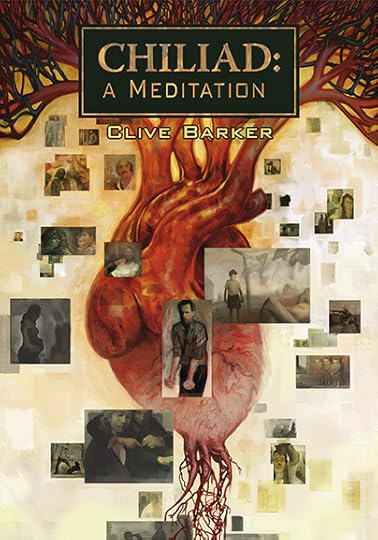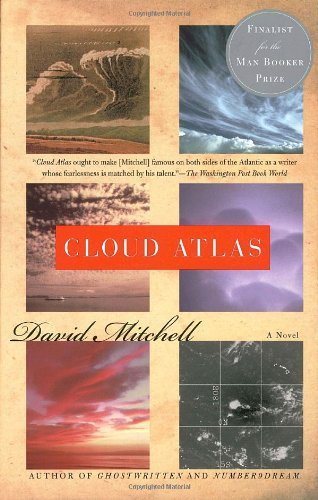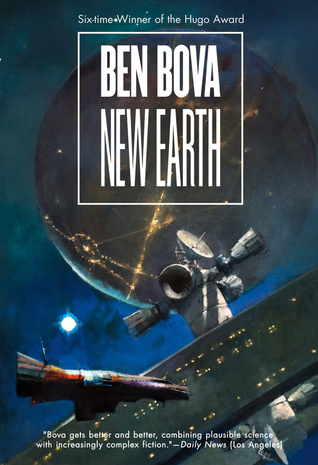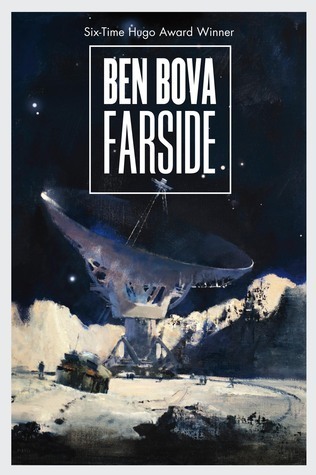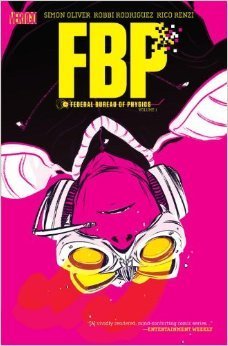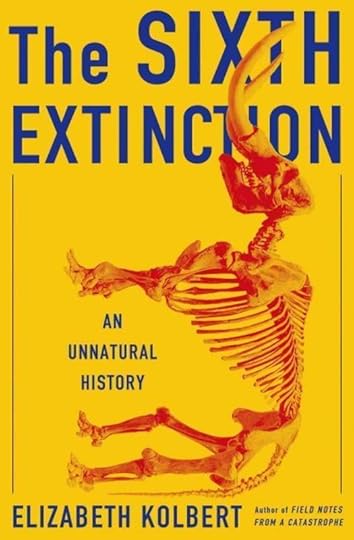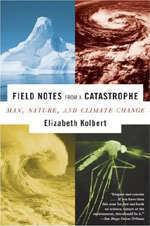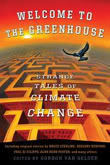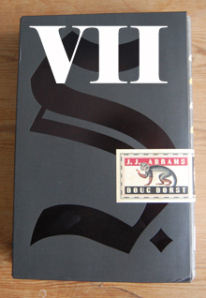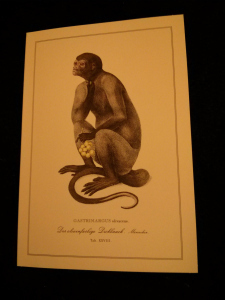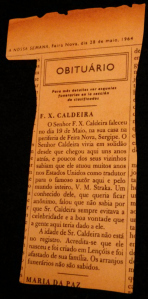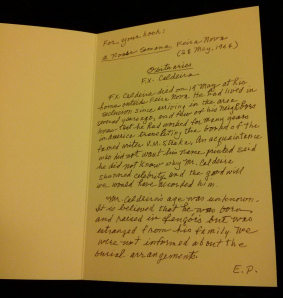Alex C. Telander's Blog, page 41
August 6, 2014
BOOK REPORT: Franchise Team Tackles Lack of Harry Potter Familiarity, Moving Your Books, Amazon Offers An Explanation & More!
18 Things Book Addicts Say
If you’re looking to make non-readers feel REALLY stupid, look no further.
Harry Potter Global Franchise
A Harry Potter Global Franchise team has been put together to make sure you never forget the name Harry Potter!
Bookish Shoes for Literary Feet
Feel like everyone doesn’t really know how much you love books? Go one literal and literary step further!
[READ MORE . . .]


August 4, 2014
“Chiliad: A Meditation” by Clive Barker (Subterranean Press, 2014)
Bestselling author Clive Barker has an innate ability to find an unusual and compelling word, story or book that grabs a reader’s interest; and he does just this with Chiliad. A chiliad is a measurement of a length of time, exactly one thousand years; this book features two novellas that stretch across the span of a millennium.
“Men and Sin” takes place in the year 1000 AD about a strong relationship between an ugly man and ugly woman, and when this man has his love taken from him, her life ended, he vows revenge against those who have committed this grave sin for removing the thing he cared for in his life. “A Moment at the River’s Heart” taking place a thousand years later also features a brutal attack against a woman and its repercussions against those who carried out the act and those who care.
Barker apparently wrote these novellas after a period of depression, and while the stories can feel convoluted and overly-philosophical, it’s possible to feel the dark, strong emotion emanating from Chiliad. It is an evil and twisted ride, one you might want to end, but it is also one you shan’t forget.
Originally written on December 30, 2013 ©Alex C. Telander.
To purchase a copy of Chiliad from Bookshop Santa Cruz, and help support BookBanter, click HERE.


August 1, 2014
“Cloud Atlas” by David Mitchell (Random House, 2012)
David Mitchell’s Cloud Atlas, originally released in 2004, went on to become a quick bestseller, winning a number of awards including the British Book Awards Literary Fiction Award. In 2012, the book was re-released to tie up with the movie adaptation starring Tom Hanks.
Cloud Atlas employs an unusual literary device that behooves the reader to know about it before they begin reading the book, as it will make the reading experience a richer and fuller one. Often books employing unusual styles or literary devices force the reader to spend anywhere from 50-100 pages in grasping the device and style that is going on, which can lead to missing part of the story. The device used in this book involves a series of framing stories, five in total moving forward in time, beginning with first parts, then a complete story at the center, and then the second parts of the five stories moving back in time, ending with the conclusion of the story that the book began with.
The first story is set in 1850 in the Pacific archipelago known as the Chatham Islands. Adam Ewing has a troubling experience that leaves him with a lethal parasite lodged in his brain; fortunately one of the few doctors who knows how to treat it happens to be on the same boat. The second story takes place in 1931 in Zedelghem, Belgium, where Robert Frobisher is serving as an aid and assistant to an old music composer who is looking to write something memorable. Frobisher tells his tale through a series of letters sent to Rufus Sixsmith, an old lover and dear friend. The third is set in Buenas Yerbas in 1975, where Luisa Rey is investigating the Seaboard HYDRA nuclear power plant, using the help of one of its engineers, one Rufus Sixsmith.
The fourth story, set in present day Britain, is about the editor for a vanity publisher who publishes a successful manuscript but now owes people lots of money. He flees, looking for escape and finds himself trapped in a strange asylum. The fifth framing story, set in a dystopian future, is revealed to be a totalitarian Korea where clones work underground, making food for the humans above, until one day one of the clones decides to break free. The center story of the book is about a primitive post-apocalyptic society set on the Big Island of Hawaii, told in a particular vernacular.
Cloud Atlas is an interesting experiment; one of those books that is a great example of good science fiction that is sectioned and shelved in regular fiction for its literary qualities. Each of the stories in the book feature references that link them with the succeeding and preceding stories. The center story is told in a vernacular that becomes overbearing for the reader. Overall the book feels more like a short story collection that an overall themed novel. It is nevertheless a fascinating work of fiction, both original and entertaining.
Originally written on February 11, 2013 ©Alex C. Telander.
To purchase a copy of Cloud Atlas from Bookshop Santa Cruz, and help support BookBanter, click HERE.


“New Earth” by Ben Bova (Tor, 2013)
Bestselling science fiction award winning author, Ben Bova, returns after setting the stage with Farside. The new Earth-like planet has been discovered and studied, and now some years later the first exploratory expedition is on its way to the distant planet, which is already being called “New Earth.”
The trip takes eighty years each way, as the crew sleeps in cryonic suspension, never aging. By the time they return to Earth, 200 years will have passed. But for now the crew has no thoughts of returning home, but finding out just what is happening on this planet. As everyone is brought out of their long sleep, everything seems to be functioning normally. Before they know it a weird light is seen on the planet and the following day most of the crew go down to explore and discover.
It is soon discovered that “New Earth” is inhabited by a considerable population of very human-like beings. In fact, the similarities are bizarre and at times astounding. Apart from the fact that they are able to speak English, they have names from Earth’s mythology and history, and appear to know a lot about the planet the crew calls home. Clearly there is a big mystery here that needs to be solved; the question is whether these alien beings are friends or enemies?
Originally written on August 26, 2013 ©Alex C. Telander.
To purchase a copy of New Earth from Amazon, and help support BookBanter, click HERE.
You might also like . . .


July 30, 2014
Book Report: Best Book Tumblrs, Jack White Adds Publisher To HIs Resume, Secrets of GOODNIGHT MOON & More!
What Writers Can Learn From Goodnight Moon
A look at the simple children’s story that holds much more than you ever imagined.
Authors United
Some big-name authors are banding together to come up with a “long-term strategy” for the Hachette/Amazon dispute. Also book buyers are spending less at Amazon, according to a recent survey.
Libraries are Not a “Netflix” for Books
Some basics on what libraries actually are and how important they are to the fabric of our society.
[READ MORE . . .]


July 28, 2014
Guest Post: “The God Hunter” by Tim Lees
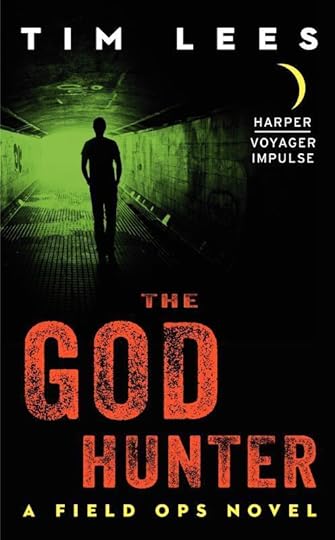
Registry field op Chris Copeland arrives in Hungary on a routine mission: find a sacred spot, lay down a wire grid, and capture a full flask of a god’s energy. But when his arrogant new partner, Shailer, sabotages the wires, things go very, very wrong: the god manifests as a mirror image of Chris himself. Chris quickly destroys the god, and, for the good of the company and his own career, buries the evidence.
Six years later, Shailer is a rising star among the energy industry’s corporate elite, while Chris has taken a break from operations. But when a mysterious serial killer begins stalking Budapest-a psychopath who bears an eerie resemblance to Chris-the operative is forced back into the field.
With the help of Anna Ganz, a brusque, chain-smoking Hungarian detective, Chris tracks the monster across the globe. Only the real danger isn’t a killer on the outside . . . it’s Chris’s treacherous colleagues at the Registry who refuse to acknowledge the terrifying forces they’ve unleashed in the name of profit-forces whose origins lead back to the dawn of man . . . and beyond.
Tim Lees is a British author living in Chicago. His short fiction has appeared in Postscripts, Black Static and Interzone, among many other publications. He is author of the collection, The Life to Come, nominated for a British Fantasy Award, and the novel Frankenstein’s Prescription, described by Publisher’s Weekly as “a philosophically insightful and literary tale of terror.” When not writing, he has held a variety of jobs, including teacher, conference organiser, film extra, and worker in a psychiatric hospital. His blog is www.timlees.wordpress.com.
The God Hunter by Tim Lees – **EXCERPT**
Chapter 1: Field Ops
I was laying cable on the south side of the altar, working by instinct now, rather than planning. There is a point the brain goes quiet and the hands take over. That’s the point I like. I felt the wires grow warm under my fingertips. They pulsed and trembled; once or twice they caught a gleam of color from the windows high above, and then a spark would seem to flash along their length. I’d move them, one way or the other, depending which felt right.
The tools of my profession can be beautiful, seen from a certain angle, in a certain frame of mind.
So when Shailer called, “Watch this!” I didn’t look up straight away. I swung the second braid of wire off to the left, put a loop into the third, then took the fourth and held it for a moment, seeking my next move. I sucked my lower lip. I could have made a guess, and probably have even got it right. But the rhythm had been lost now, and the sense of things was gone.
I turned round slowly, pretty sure I wasn’t going to like what happened next.
Shailer was standing in the aisle. He wore baggy shorts and a long, sloppy T-shirt, which may have been the fashion back at home, but left him with the look of a collapsing tent. He’d put a chalice upside down on his head. It pushed his hair into his face. He grinned at me, waved, and started goose-stepping back and forth for all that he was worth. He raised his right arm. He sieg-heiled gleefully and bellowed in a dreadful German accent:
“Lebensraum! Lebensraum!”
I told him, “Cut it out.”
“Lebensraum, mein Führer!”
“Cut it out!”
But it was my fault, I suppose, regardless of how inadvertently. Last night I’d tried preparing him. I’d had him watch the newsreels, the old stuff, to get him in the mood, get him acclimatized – given the place we were, the history; a quick reminder of the power of thought en masse. What my old mentor Fredericks, in his pompous way, would no doubt call an Invocation of the Deity, for what that’s worth. Still, I’d been hoping it might resonate, set a few thoughts spinning where there’d probably been precious few before.
Shailer hadn’t seen it that way. No, to Shailer, it had all meant something very different: a bunch of funny-looking guys in funny-looking uniforms doing funny-looking marches, much too long ago, and much too far from home to be of any interest now.
Especially to him.
He put his fingers up under his nose, the other arm still raised in a salute. It was more John Cleese than Hitler, to be honest, and perhaps not even that; more somebody impersonating Cleese, reality a dozen times removed.
I stood up, crossed to him in six quick steps, and slapped him hard across the face.
That got his interest, anyway.
The chalice toppled from his head and clanged onto the floor. The echoes shivered; it was as if the whole church suddenly breathed in, scenting something was amiss within it. The hairs upon my neck began to prickle. I recognized that moment, knew it instantly. I glanced around.
The going can get sensitive at this stage. Things get raw.
Shailer stared at me, shock and disbelief caught in the slack O of his mouth, the water welling in his eyes. Then his shoulders tensed, his fists came up, his eyes went thin and hard. I waited for the rush of anger to die down. I told him, “Be professional.”
His eyes stayed hard.
I said, “You fool around on one of these, then we could both die. You, I don’t much care about. Me, I do.”
His mouth squeezed tight. A muscle flickered in his jaw. I turned my back and walked slowly to the altar, giving him lots of time to jump me if he’d wanted to.
He wanted to, all right.
He didn’t try it.
“Fetch the flask,” I said. I said it in a neutral tone. Business-like. I kept my head down, bending to the work. Footsteps on the stone floor. I heard him coming, closer, closer. He set the flask beside me. It’s a thick metal container, like a strongbox with a socket in the top.
“OK,” I said. “That’s our receptor. Once we’re done, we double seal it, just for luck, and walk away. I’m hoping that it won’t take long.”
He didn’t answer. I was talking to myself. I linked the last few cables, showed him a third time how to do it, carefully explained it all, reciting from the manual. My heart-rate was up. Breathing too. The talking helped to calm me, normalize me once again. I like to stay cool when I’m working; no stray emotions, nothing to latch onto. It’s like a meditative process. I tried to focus on the task, to let that side of my brain come to the fore. Signs were, we’d got a pre-incarnate here. Tricky. Or worse. And Shailer was the last person I wanted with me. All right – to be fair, perhaps it wasn’t his fault he was such an idiot. But if it wasn’t his, I’d really no idea who else to blame.


July 25, 2014
“FBP: Federal Bureau of Physics Volume 1: The Paradigm Shift” by Oliver Simon and Robbi Rodriguez (Vertigo, 2014)
Welcome to a world where not everything is as it seems; where the rules of physics sometimes don’t apply and at other times are just completely broken before your very eyes, whether it’s gravity failures or quantum tornadoes. No, it’s not the safest place to live, but it’s at least good to know that when things get really bad and out of whack, one can always call on the Federal Bureau of Physics to come in and lend a hand.
Adam Hardy is your average young, go-getting FBP agent who has some experience under his belt, but when the gravity suddenly fails in a localized area of the city and an alternate dimension is created, known as a “BubbleVerse,” it’s a whole new level for him. And as they go through the necessary procedures to take care of the incident, new facts come to light that show there is something much bigger going on here than previously thought.
The story is an interesting start to a series that has a lot of potentially cool places to go, while the first volume has hints of more going on than expected. The artwork is a little complicated and haywire at times, that can temporarily lose the reader, but it fits well with the story and subject matter. FBP looks to be an catchy new series and another impressive addition to Vertigo’s great lineup.
Originally written on June 28, 2014 ©Alex C. Telander.
To purchase a copy of FBP from Bookshop Santa Cruz, and help support BookBanter, click HERE.


July 23, 2014
Book Report: Infinite Kindle, New Dutch, Best of 2014 So Far & More!
Kindle Unlimited
Amazon unveils a new subscription program giving members access to thousands of ebooks and audiobooks for $9.99 a month.
Best of 2014
The best books of 2014 so far.
The Dirty Parts
Book Riot ranks euphemisms for body parts.
[READ MORE . . .]


July 21, 2014
“The Sixth Extinction” by Elizabeth Kolbert (Henry Holt & Co., 2014)
Anyone who is in their right mind with a decent amount of common sense knows we’re doing a great job of messing up this planet, to the point where it may already be too far gone to turn things back to the way they were. One area we know we’ve made perhaps the most devastating impact, with overpopulation and pollution to name a couple causes, is with species extinction. This is the crux of The Sixth Extinction from Elizabeth Kolbert, bestselling author of Field Notes From a Catastrophe.
There have been a number of mass extinctions during the five billion year history of this planet The extinction of the dinosaurs is perhaps the most well known; another mass extinction before the dinosaurs almost ended all life on the planet. The reasons for these five previous mass extinctions run the full expected range from extreme conditions to natural disasters to meteors hitting the planet. But now Kolbert suggests, and has been corroborated by a number of scientists, that we are in the age of the sixth extinction where many unique species are being lost every year and it’s all our fault.
The Sixth Extinction is divided up into strong chapters that feel like entire books in themselves, each providing insight into a specific previous mass extinction, as well as some well known species that went extinct, such as the great auk and the American mastodon, and how. Kolbert also travels the world, meeting with scientists and discussing the current climate and where things lie with threats against coral along the Great Barrier Reef, bat populations in the United States that have recently been devastated due to a merciless fungus, as well as the declining honeybee populations to name a few..
The book never has a chance to slow down or get boring, because Kolbert keeps giving the reader facts and stories and perspectives that are both illuminating and shocking. It is a book that can be greedily read cover to cover in one night, or each chapter savored over a longer period of time. The one failing is perhaps there is little lesson or hope necessarily at the end for what can be done. Could this be because it is already a foregone conclusion that what happened to the dodo will happen to many more species if we don’t change our ways? Or perhaps simply learning and knowing what is discussed in the book and spreading the word about them will help change the mindset, for it is not until we as a planet work together to make a change that we will start making any great strides.
Originally written on June 27, 2014 ©Alex C. Telander.
To purchase a copy of The Sixth Extinction from Bookshop Santa Cruz, and help support BookBanter, click HERE.
You might also like . . .


July 18, 2014
S. VII
[This is the seventh installment in a series. The whole series can be found here.]
In the sixth chapter of S. we learn that our characters reading Ship of Theseus are named Jennifer and Eric. (This may have been revealed earlier in the book but it was in this chapter that I picked up on it.) Naturally, the use of the names by the characters gives more credence to their developing relationship.
It is in this chapter we have one of the most impressive pieces of media in the book, with multiple pages of yellow-lined legal pad paper with carefully detailed writing on both sides from Eric as he recounts his moving personal story from childhood of how he first got into Straka with a family tragedy he was blamed for. It continues to shock the reader how far the people who worked on this book went for authenticity and realism, how these pages even feature stains from water and/or coffee, as well as smudging and other stains that would be normal for a document like this. It is also interesting that Eric uses some unusual contractions even though he has as much room as he wants to write what he wants. It is part of his character; indicatory of the way he thinks.
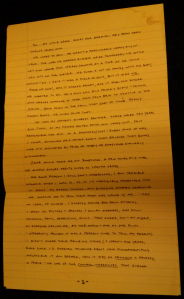
We also discover that the crew of the ship Theseus are definitely a few sandwiches short of a full picnic as we witness one crew member getting his lips and mouth sewn together to silence him without any anesthetic while the rest of the crew watches.
Eric and Jennifer finally meet in real life, details of which are not readily revealed, but they have a good enough time to want to meet again. It also seems that Jennifer’s scholastic career is still on very shaky ground and she is unlikely to graduate now due to failing a class.
It is explained that the confusing postcards in the previous chapter of birds from Brazil were actually written by Straka, which wasn’t completely clear until now. But then S. is the sort of book you have to work at.
Meanwhile Jen is becoming more and more convinced that she is being watched and followed, which comes across as being overly paranoid, but with what has happened so far and the weird stuff going on in Ship of Theseus, even though she’s an unreliable narrator and Eric only seems to vaguely believe, it seems there must be something to it. The question is who is watching and following her?
The idea is put forth that has been discussed between Jen and Eric: Straka and the translator were secretly communicating with each other through edits of the book and through the footnotes, a coded message that remains in the printed version of the book.
This is a big reveal chapter in many ways for the character of S in knowing that he is important to everyone around in some way and he gets handed special materials to complete his apparent destiny, but still not knowing who he actually is. While for the secondary characters – Jen and Eric – they meet on multiple occasions in real life and is clear to the reader that they are falling in love with each other and their lives are becoming more important related to Ship of Theseus.
Have another cliffhanger ending to the chapter with a scary fire at the motel where Jen is staying, though it’s unknown who is behind the arson, but is definitely tied in with the story and what they’re working on.
What makes the story wonderfully eerie at times is that so many events in the story of Ship of Theseus end up being mirrored in the lives of Jen and Eric in some way, most notable with the terrible fires.




